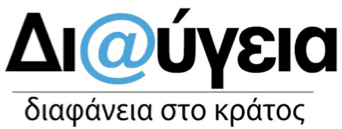EETT intervenes telephony and Internet matters for the benefit of consumers by:
- Ensuring the provision of a minimum set of services to all citizens, which constitutes the Universal Service.
- Laying down the principles and obligations with which companies must comply.
- Setting out specific obligations of companies towards consumers, as well as the terms and conditions for the provision of services by issuing Codes of Conduct.
- Supervising compliance with the regulatory framework. In addition, ΕΕΤΤ carries out audits, either on its own initiative or upon a complaint, and may impose penalties where evidence of infringement is found.
- Intervening where competition does not appear to be functioning properly with a view to preventing any negative consequences for consumers and protecting their rights.
- Informing consumers and issuing recommendations about their rights and obligations, as well as the developments in telephony and the Internet.
EETT is not responsible for:
- Issues between consumers and companies pertaining to:
- The resolution of financial disputes (e.g. disputed billing charges, reimbursement, compensation).
Competent authorities: The civil courts and the Hellenic Consumers’ Ombudsman. - Investigating all kinds of disputes about unfair contract terms, which are not associated with the legislation on electronic communications.
Competent authorities: The civil courts, the General Directorate of Consumer Protection of the Ministry of Development. - Out-of-court settlement of any dispute.
Competent authority: Hellenic Consumers’ Ombudsman.
- The resolution of financial disputes (e.g. disputed billing charges, reimbursement, compensation).
- Issues relating to unfair competition and unfair commercial practices (e.g. misleading advertising).
Competent authorities: The civil courts, the General Directorate of Consumer Protection of the Ministry of Development. - Issues about protecting the confidentiality of electronic communications and network security.
Competent authority: Hellenic Authority for Communication Security and Privacy (ADAE). - The processing and use of consumers’ personal data by companies. Competent authority: Hellenic Data Protection Authority (HDPA).
- The forging of signatures in contracts.
Competent authorities: Criminal/civil courts. - Unsolicited electronic mail (spam).
Competent authorities: Hellenic Data Protection Authority (HDPA). - The content of websites.
Competent authorities: The competent authorities are determined on a case-by-case basis, depending on the content of the website. In the event of alleged fraud via the website, the responsibility lies with the Cyber Crime Division of the Hellenic Police.






